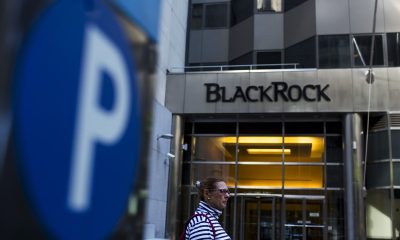Investing
Judge certifies Johnson & Johnson shareholder class action over talc disclosures

© Reuters. FILE PHOTO: Bottles of Johnson & Johnson baby powder line a drugstore shelf in New York October 15, 2015. REUTERS/Lucas Jackson/File Photo
By Jonathan Stempel
NEW YORK (Reuters) – A federal judge said Johnson & Johnson (NYSE:) shareholders may pursue as a class action their lawsuit accusing the company of fraudulently concealing how its talc products were contaminated by cancer-causing asbestos.
U.S. District Judge Zahid Quraishi in Trenton, New Jersey, on Friday allowed shareholders from Feb. 22, 2013 to Dec. 13, 2018 to pursue their securities fraud claims as a group.
He rejected J&J’s argument that any class period be at least a year shorter because some events that allegedly caused its stock price to fall contained no “new” information.
J&J’s talc products have included its signature baby powder. The company stopped selling talc-based baby powder globally this year, switching to corn starch as the main ingredient. It has said its talc products are safe and do not contain asbestos.
Neither J&J nor its lawyers immediately responded to requests for comment. Lawyers for shareholders including the lead plaintiff San Diego County Employees Retirement Association did not immediately respond to similar requests.
Class actions make it easier for shareholders to recover more money, at lower cost, than if they sued individually. A longer class period could increase the amount recovered.
Shareholders said J&J’s stock price fell six times in late 2017 and 2018 following events that confirmed how the New Brunswick (NYSE:), New Jersey-based company and various executives hid the truth about asbestos in its talc products.
These events included a jury awarding $4.69 billion in July 2018 to 22 women who said asbestos caused them to develop ovarian cancer, and a Reuters report five months later that said J&J knew about the asbestos risks for decades.
J&J said the six events could not have hurt its stock price because none contained new information that “corrected” its earlier disclosures.
It said the only new information from the verdict was that jurors accepted the women’s arguments, and that all 56 internal documents mentioned in the Reuters report were already public.
Quraishi was unpersuaded. Addressing the Reuters report, he said its “careful analysis” and providing of “necessary context” made it more than a rehash of “stale information.”
The share price fell 10% the day the report was released.
J&J also faces mass tort litigation encompassing more than 50,000 lawsuits over its talc products.
Courts have rejected two efforts by the company to use the bankruptcy process to limit its exposure to talc litigation.
The case is Hall v Johnson & Johnson et al, U.S. District Court, District of New Jersey, No. 18-01833.
(This story has been refiled to remove an extraneous word from paragraph 1)
Read the full article here

-

 Side Hustles6 days ago
Side Hustles6 days ago5 Things That Could Significantly Impact Your Company in 2025
-

 Investing6 days ago
Investing6 days agoNFI Group surge after board reshaped with new appointments, chairperson By Investing.com
-

 Side Hustles4 days ago
Side Hustles4 days agoMicrosoft Is About to Begin Job Cuts. Here’s Why.
-

 Side Hustles7 days ago
Side Hustles7 days agoHow Failing 22 Times Paved the Way to My Success
-

 Passive Income5 days ago
Passive Income5 days ago3 Challenges Entrepreneurs Will Face in 2025
-

 Side Hustles7 days ago
Side Hustles7 days ago3 Strategies to Make Your Next Campaign Go Viral
-

 Make Money3 days ago
Make Money3 days ago10 Critical Questions to Ask Your Financial Advisor Now
-

 Side Hustles5 days ago
Side Hustles5 days agoThe Canadian Media Lawsuit That Could Reshape Tech’s Future


















